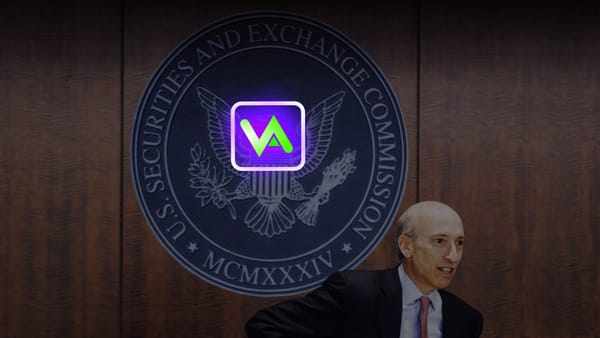
New SEC Rule Raises Concerns for DeFi
"How Can a Software Protocol Register as a Dealer?" The SEC has announced a new rule that amends the definition of securities "dealer" in a way that may impact DeFi.
- The SEC has announced a new rule that amends the definition of securities "dealer" in a way that may impact DeFi.
- The rule could potentially subject automated market maker (AMM) liquidity providers and other DeFi companies to registration requirements and regulations.
- The rule has drawn criticism from some SEC commissioners and industry who worry it could stifle innovation in the DeFi space.
The Securities and Exchange Commission (SEC) recently announced a new rule that could have significant implications for decentralized finance (DeFi). The rule, which was announced in February, amends the definition of securities "dealer" in a way that may sweep in automated market maker (AMM) liquidity providers and other DeFi companies, subjecting them to registration requirements and other regulations.
Under the Exchange Act and SEC rules, securities "dealers" are subject to comprehensive registration and other regulatory requirements. The definition of "dealer" in Section 3(a)(5) of the Exchange Act includes "any person engaged in the business of buying and selling securities... for such person's own account," but excludes "a person that buys or sells securities... for such person's own account... but not as part of a regular business."
New SEC Dealer Rule
The new SEC rule expands this definition to potentially include a broader range of market participants. The amended definition would consider a market participant to be a "dealer" if they engage in any of the following activities:
| Current Definition | Amended Definition |
|---|---|
| Buying and selling securities for their own account as part of a regular business | Buying and selling securities for their own account as part of a regular business |
| Routinely making roughly comparable purchases and sales of the same or substantially similar securities in a day | |
| Routinely expressing trading interests that are at or near the best available prices on both sides of the market and that are communicated and represented in a way that makes them accessible to other market participants |
The SEC believes that this expanded definition is necessary to capture the evolving nature of securities markets, particularly in light of the growth of decentralized finance (DeFi). Many DeFi platforms rely on automated market makers (AMMs) and liquidity providers to facilitate trading. These entities often engage in high-frequency, algorithmic trading strategies that could potentially fall under the new definition of "dealer."
If classified as dealers, these DeFi participants would be subject to a range of regulatory requirements, including registration with the SEC, maintaining minimum net capital, and complying with various reporting and recordkeeping obligations. The SEC has publicly suggested that the rule may subject AMM liquidity providers and other DeFi participants to these registration requirements and other regulations.
This potential expansion of the "dealer" definition has raised concerns among some market participants, who worry that it could stifle innovation in the rapidly evolving DeFi space. They argue that many DeFi protocols are fundamentally different from traditional securities dealers and that subjecting them to the same regulatory framework could be burdensome and impractical.
"How Can a Software Protocol Register as a Dealer?"
The rule has drawn criticism and concern from some SEC commissioners and industry participants. Commissioner Hester Pierce recognized that the rule's application to DeFi would raise distinct concerns, asking, "How can a software protocol register as a dealer?" Commissioner Mark Uyeda echoed these concerns about the new definition of "dealer" and the accompanying risk to market liquidity.
The crypto industry has expressed growing concern over SEC attempts to regulate the crypto markets, and this rule has added to those concerns. Many worry that the rule could stifle innovation and growth in the DeFi space by imposing burdensome regulatory requirements on participants.
Despite these concerns, the rule has received support from some SEC commissioners. Chair Gary Gensler touted the rule's greater protection for investors, and anticipated that requiring statutory "dealers" to register and comply with high standards would lead to greater market integrity, resiliency, and transparency.
Commissioners Caroline Crenshaw and Jaime Lizárraga also expressed support for the rule, suggesting that it is a necessary step to protect investors and ensure the integrity of the securities markets.
As the rule goes into effect, it remains to be seen how it will be enforced and what impact it will have on the DeFi space. Many in the industry are watching closely to see how the SEC will interpret and apply the rule, and whether it will indeed sweep in a wide range of DeFi participants.
Some are hopeful that the SEC will provide further guidance and clarification to help DeFi participants navigate the new regulatory landscape. Others worry that the rule could have a chilling effect on innovation and growth in the space, as participants grapple with the costs and challenges of compliance.
Regardless of the outcome, it is clear that the new SEC rule has added a new layer of complexity and uncertainty to the already-complex world of DeFi regulation.